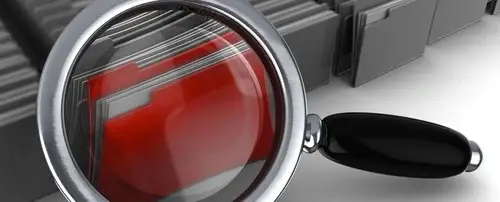What’s The Deal With Background Checks?

We’ve gotten quite a few questions from readers about background checks: what they are and how, if at all, can job seekers prepare for them. To tackle this question, Ashley Putnam—recruiter and nonprofit director—shares some advice below.
You’ve done two rounds of interviews, met several staff members, and had your resume discussed a thousand times. You feel like you’re in: the HR lady liked you, the supervisor liked you, you meet the qualifications for the job. And then it happens: an email from HR stating, “We need you to complete a background check before the next step in your interview.”
Background check? I have to do a background check?! If you’ve been on the job market in the past 5-10 years, you have most likely filled out more than one background check form. It is usually fairly straightforward: your social security number, a list of previous addresses (in the past ten years) and a signature line where you “hereby authorize the aforementioned company” to have access to intimate information about your life.
Almost all organizations use background checks and they have become a routine part of a job application. Some organizations will conduct more intense background checks than others, especially for positions where you may work with children, the elderly, at-risk populations, or individuals with special needs.
So, if you’ve ever been through this process, I’m sure you’re curious, “What happens after I fill out that form?” As a recruiter, let me give you a little insight into the infamous background check.
What does this mean?
Being asked to fill out a background check is a good sign! That means the company you’re interviewing with is thinking seriously about hiring you. Why? Because background checks cost money. That’s right. And no company wants to spend money on someone they’re only kinda maybe thinking about hiring. So take a second and pat yourself on the back. Then do the paperwork.
What can you see on my background check?
To be honest, this varies from organization to organization, and state to state. Remember, a background check costs money, so employers pay to see a certain amount of information. The more information, the more money it costs.
Here are a few things that we CAN see on your background:
• Former addresses
• Credit history
• Former employment
• Length of employment
• College and graduate degrees earned
• Criminal history over the past ten years
Here are things we CANNOT see on your background:
• Previous salary
• Reason for termination
• Employee reviews
• Grades earned
• Criminal history more than ten years old
Can you check my credit score?
Yes, credit checks are often included in background checks, although this may vary among organizations. Just like a landlord, credit is used as an indicator of responsibility, especially for positions that handle or have authority over money. This is a touchy practice even among employers and most of the time your credit score has little bearing on whether or not you get the job. Don’t worry, we all understand college loans – most of us have them as well!
What are you looking for when you read my background?
A background check is basically used to determine whether applicants are telling the truth about their pasts. The number one thing a recruiter asks when dong a background check is, “Do the facts match up?” Aside from your previous address or credit history, we are mostly concerned with your education and former employment. Did you actually graduate from college? Did you work for that company?
What are the red flags?
A background check is usually conducted by an automated service that the employer purchases. This service automatically generates a red flag when the facts don’t match up. For example: the person did not graduate from college, or the previous employer does not have a record of your employment. Red flags can also be generated by a criminal background, poor credit, or dates of employment that aren’t accurate. Many employers will give you the benefit of the doubt. If you say you worked until March and your employer says you worked until February, we probably won’t hold it against you. However, if you say you worked for three years and the employer says you worked for three months, that might be a conversation we need to have.
What should I disclose about my background?
My best advice if you are nervous about the background check: be upfront. If you have a criminal history or an issue with your previous employer, tell me before I run the background check. I have hired employees who fell a couple credits short of a college degree or had former employers that went out of business. The more information you provide your HR rep, the easier it is to pass the background check and move on to the final stages of your interview.
Yes. It is a lot of paperwork. Trust me, we don’t like doing it either. But keep in mind, you are just one step closer to getting that job!
About The Author
|
Ashley Putnam has worked for 5+ years recruiting staff for domestic and international organizations aimed at finding effective solutions to poverty. She currently serves as Fellowship Director for The Work First Foundation, where she manages a program that connects recent graduates with work in urban poverty and public policy. Ashley began her work in career counseling at America Works, where she counseled low-income clients on resume writing and job search in New York. She later worked as Community Engagement Manager for Mercado Global in Guatemala, where she organized internship programs and oversaw private fundraising. Ashley graduated from Barnard College in 2006 with a B.A. in Anthropology. Read more of Ashley’s career tips and advice at www.savetheworld-careers.tumblr.com or follow her on twitter @AshleyAPutnam
This post was contributed by a guest author.


